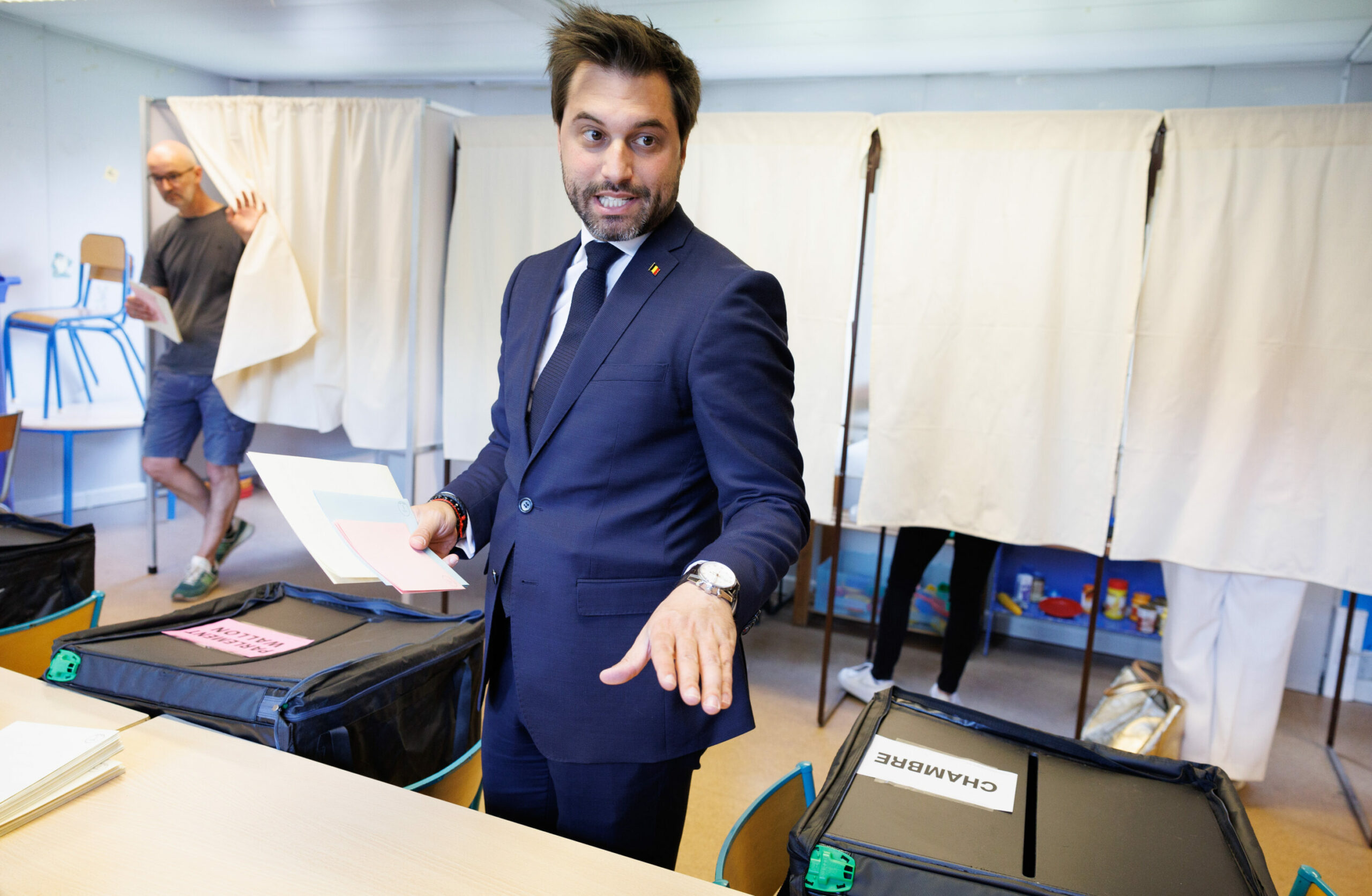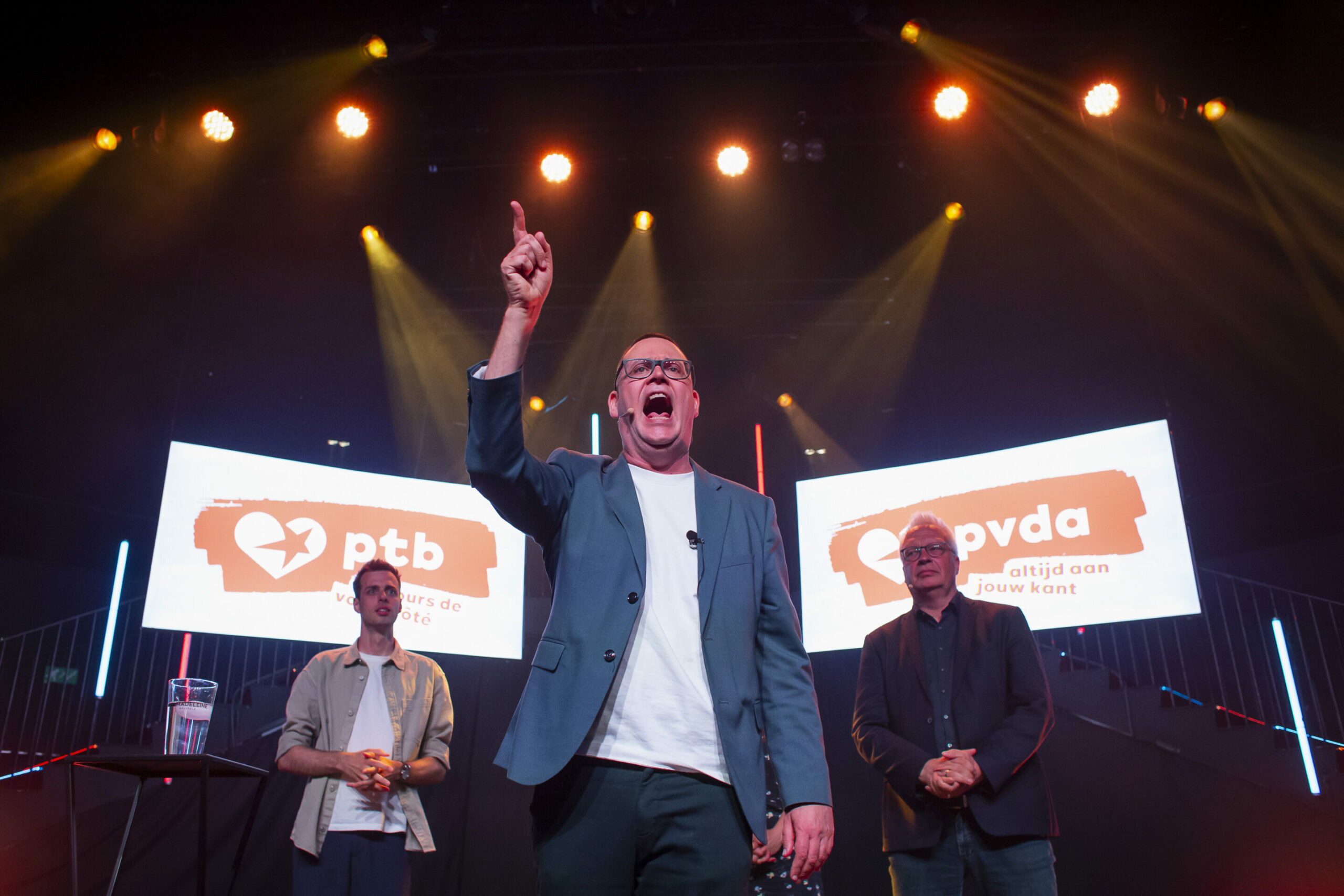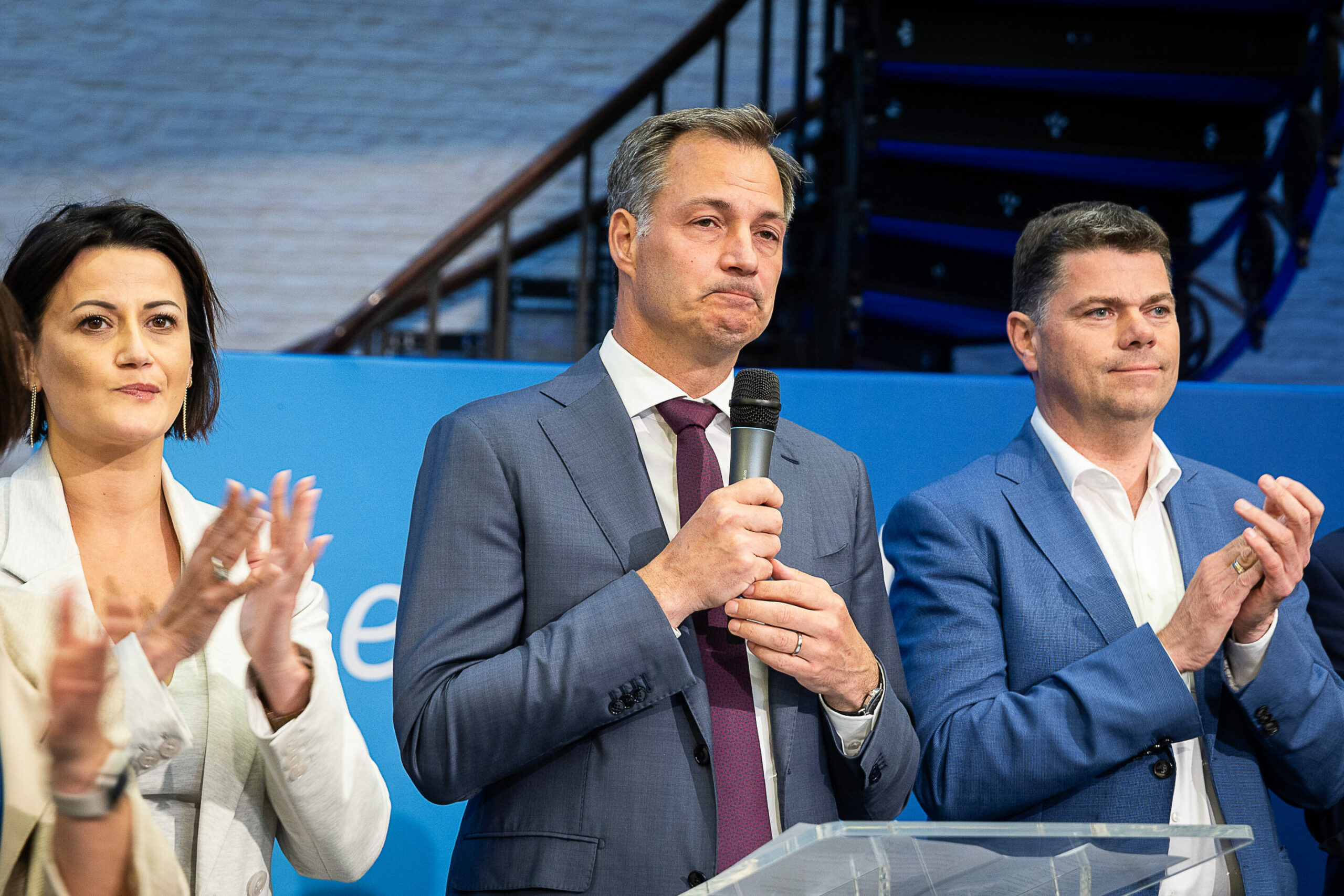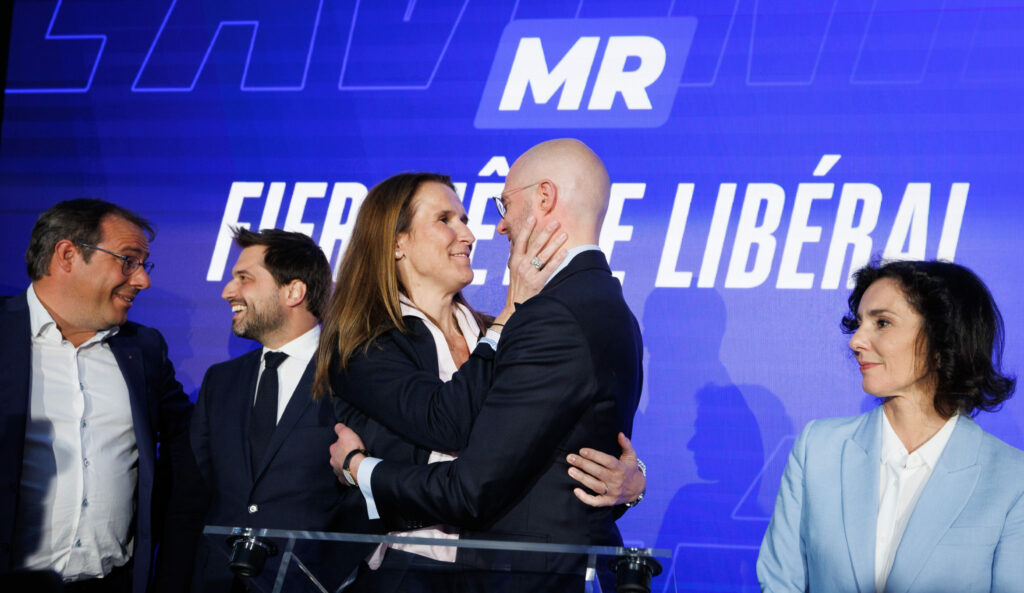Sunday marked an election day of fundamental significance for Belgium, and preliminary results indicate huge changes in the governments of the country's regions. What were the immediate reactions of the party leaders and what does it mean for national politics?
In both Brussels and Wallonia, the Francophone liberals Mouvement Réformateur (MR) flattened opposition, taking 26.3% and 30% respectively; Groen took 22.9% of the Dutch vote in the Capital Region. In Flanders, N-VA emerged as the undisputed winners, securing 24.2% of the vote whilst far-right Vlaams Belang followed closely with 22.8%.
Emotions were high at every party gathering, though some were celebrating whilst others were in the doldrums.
The winners
Liberal Francophone party Mouvement Réformateur (MR) pulled off a decisive victory in both Brussels and Wallonia (26.1% and 29.8% of the respective votes so far). Party leader Georges-Louis Bouchez hailed a "historic moment", highlighting that it is the first time MR has come first in a regional election in French-speaking Belgium.
The two regional victories put MR in a key position to influence Belgium's political direction. Bouchez said that his party has "a duty to implement our programme and create the coalition that will enable us to carry out the reforms that the people of Brussels and Wallonia voted for." He will start the process of forming a coalition on Monday and said "There is not a minute to lose."

Georges-Louis Bouchez (MR) casts his vote at a polling station in Mons. Credit: Belga / Benoit Doppagne
Following the liberals was the Socialist Party (PS), which secured 22% of the French-speaking vote in Brussels. Party leader Paul Magnette acknowledged a disappointing result but insisted that the PS has a future. He also warned about a "global slide to the right."
Indeed, the far-right made hay in Flanders. Vlaams Belang came short of its predicted victory but has nonetheless made substantial gains. Party leader Tom Van Grieken called on N-VA's Bart De Wever "not to miss this historic opportunity," encouraging N-VA to consider its extremist counterparts Vlaams Belang as allies in a governing coalition of Flanders.
N-VA once again came out on top in Flanders. "We have won these elections," said De Wever, pointing out that the weak polls and "destructive" media coverage ahead of the election did not come to pass. "Our death notice was written but you did not give up. N-VA is the leading party in Flanders." He said the people of Flanders had voted for prosperity and autonomy.

Tom Van Grieken pictured during the post-election meeting of Flemish far-right party Vlaams Belang. Credit: Belga / Dirk Waem
Since the 1980s, a cordon sanitaire has kept Vlaams Belang out of coalitions. De Wever has repeatedly maintained his party's commitment to not govern with the far-right. But other prominent N-VA figures have been less opposed to the notion of negotiating with Vlaams Belang. Minister-President of Flanders Jan Jambon has previously stated that "Vlaams Belang is a party like any other". But it remains to be seen whether the cordon sanitaire will hold.
Far left gets 'best-ever result'
The Belgian Worker's Party (PTB-PVDA) was triumphant as party leader Raoul Hedebouw addressed supporters on Sunday evening. Addressing a jubilant crowd in Brussels, the Liège native celebrated the party's "best-ever result", which saw the party make significant gains in the Brussels-Capital Region and Flanders.
"PTB-PVDA has come out as a big winner in Brussels and Flanders. We have consolidated our position and are gaining ground across the country. This is our best-ever result."
Hedebouw said the party was on track to be the largest in the federal parliament and highlighted that the PTB-PVDA is the only party to span all three regions in Belgium. "PTB-PVDA is the voice of national unity," he said. The room was filled with chants of "We zijn één, nous sommes un" ("We are one").

PTB-PVDA leader Raoul Hedebouw delivers his post-election speech. Credit: Belga / Kristof Van Accom
'Not what we hoped for'
In a visibly emotional speech, Prime Minister Alexander De Croo (Open VLD) told party members he would be resigning on Monday. The Flemish liberals, which lead the outgoing Vivaldi government, suffered losses in both Flanders and Brussels. De Croo congratulated "the winners of these elections", namely N-VA, Vlaams Belang and Vooruit. "The liberals are resilient," he said. "We will come back stronger than ever."

Prime Minister Alexander De Croo gets emotional at Open VLD's post-election meeting. Credit: Belga / James Arthur Gekiere
Ecolo's speech was markedly downbeat and understandably so: the party was punished by voters and garnered just 9.9% of support in Brussels (down by 9.7%) and 7.2% in Wallonia (down by 7.3%).
"The result is not what we hoped for," said co-president Jean-Marc Nollet, lamenting an "almost total absence" of climate issues in the media and the debates during the campaign. "Our programme was made into a caricature. Our achievements were at best ignored and too often distorted."
By contrast, Groen –the Flemish sister party of Ecolo – came out with the top result in Dutch-speaking Brussels. "We did better than expected," said its co-leaders Nadia Naji and Jeremie Vaneeckhout. However, Deputy Prime Minister Petra De Sutter (Groen) echoed the concerns of PS, commenting that "although Groen is doing better than many expected, we also see the shift to the extreme right. And that worries us."

